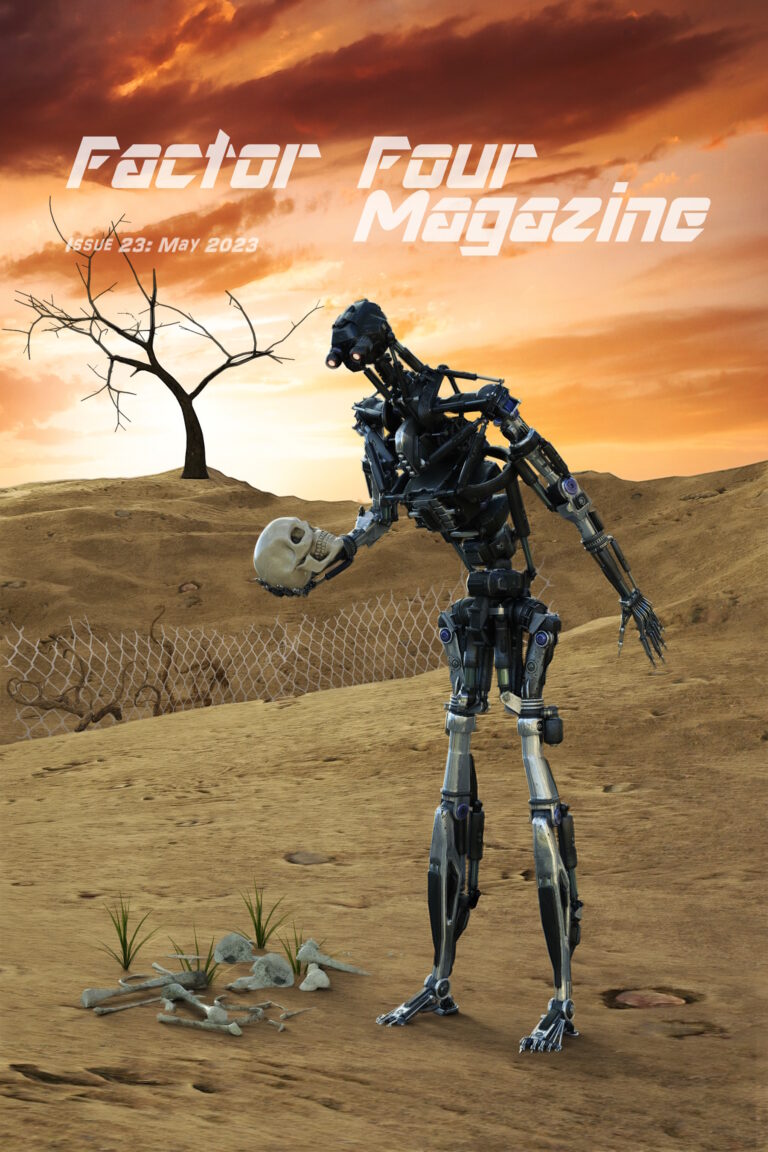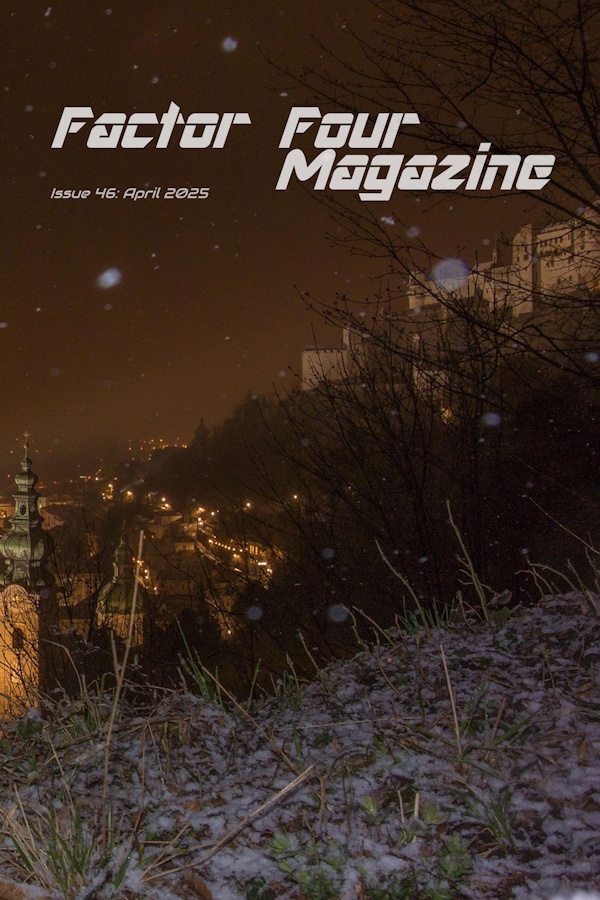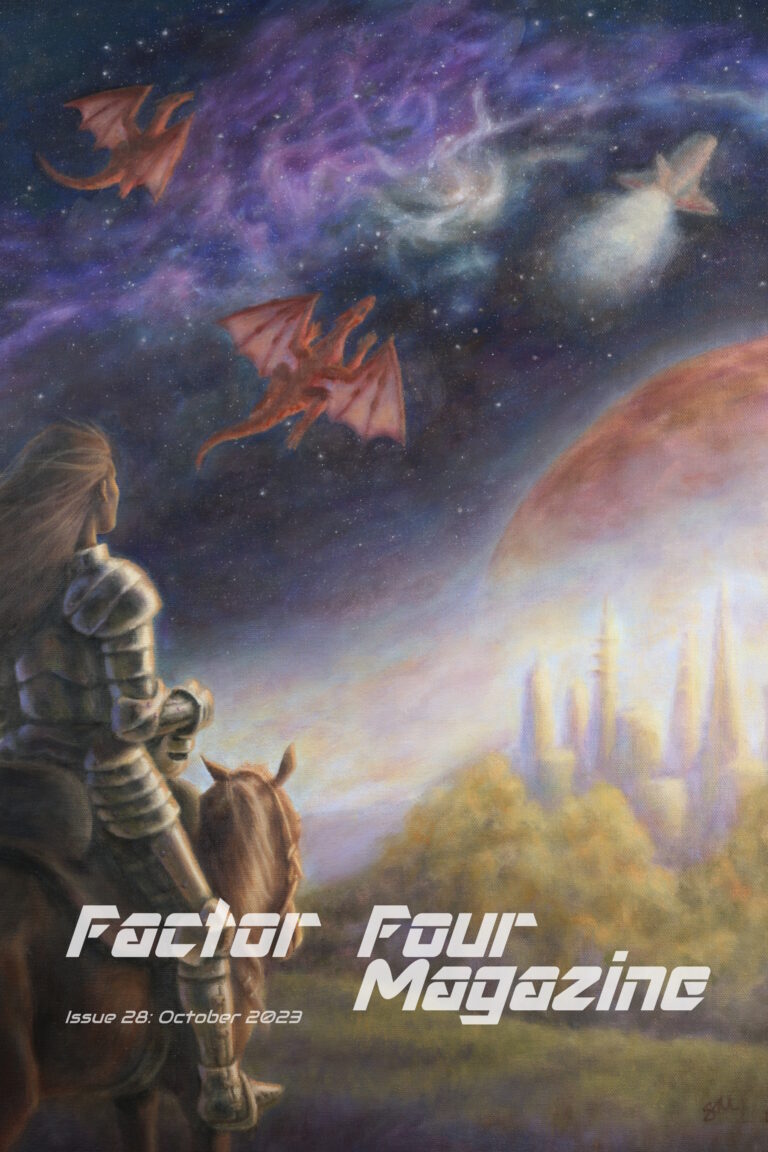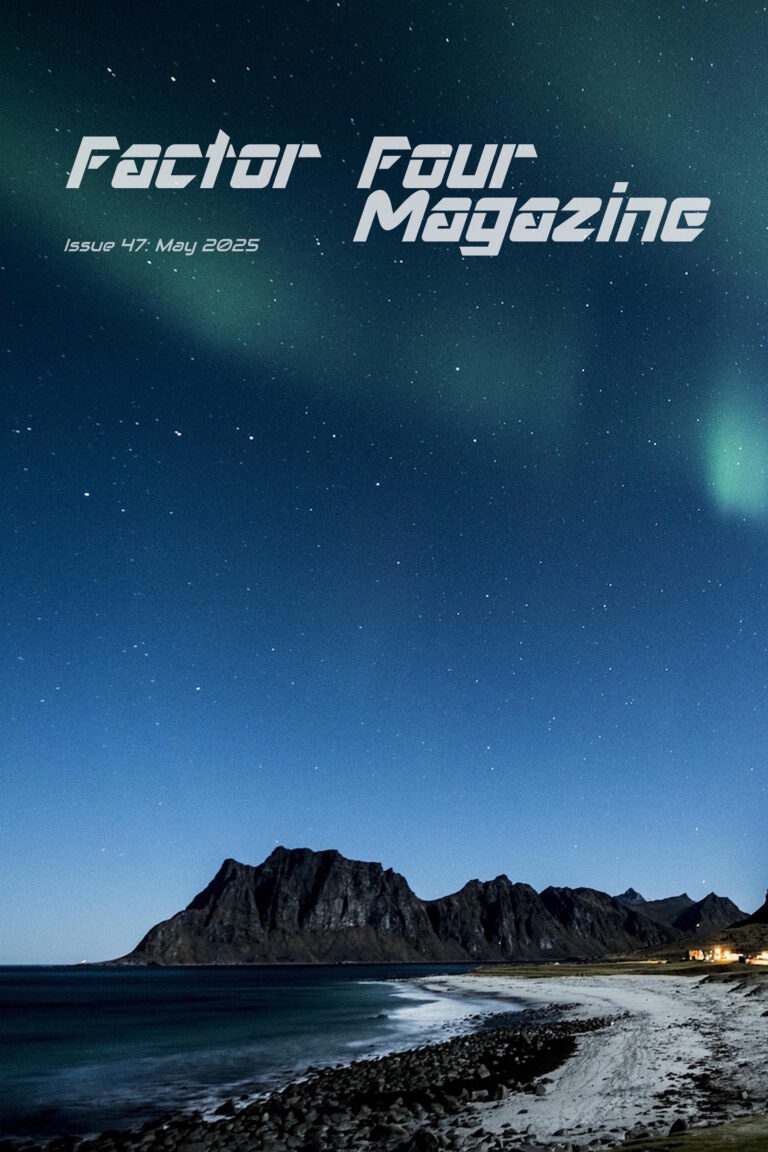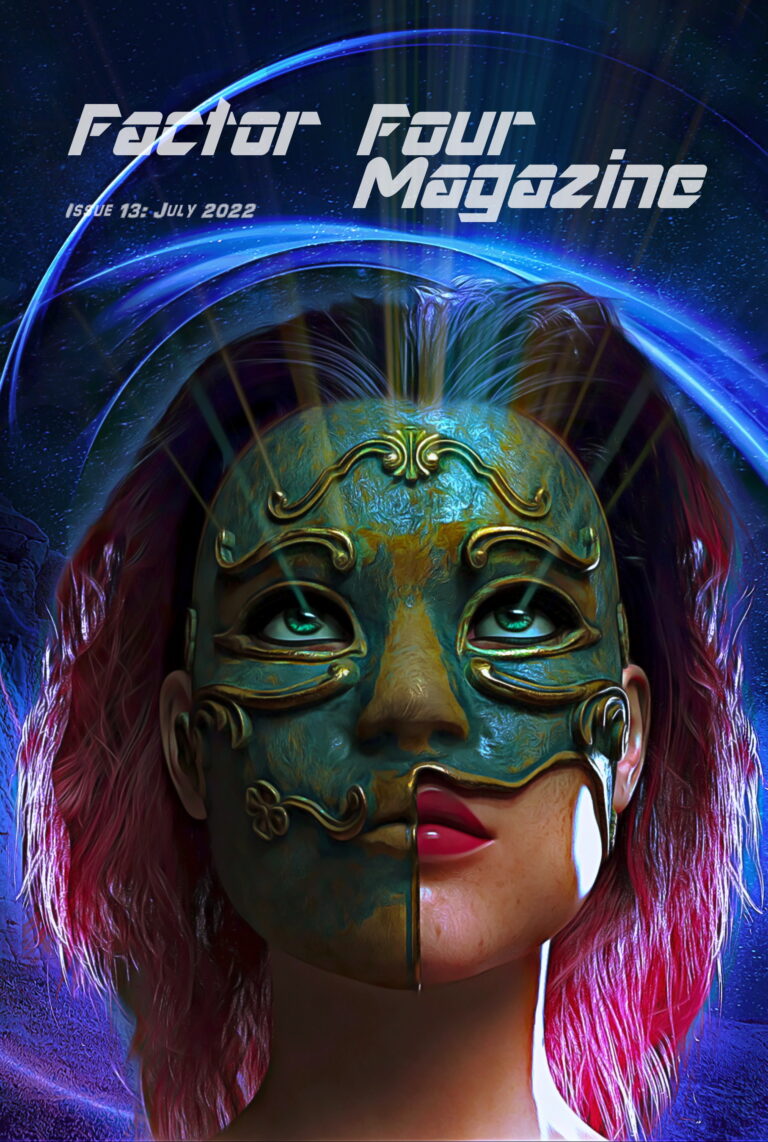Two Vases Fall by Beth Goder

Two vases fall. One containing life. The other, death.
It is the easiest test of the god-realm. Reach out a hand. Choose.
Sheel fails again, both vases smashing against the crystalline floor.
As a child, Sheel could never master the art of sand painting.
“Why are there only two colors?” he asked.
White, the blinding light of death, of oblivion. Black, the soft space between stars, where souls are born.
“Paint with the black, then the white,” said the god-bridge. “Make each row, each line.”
Sheel mixed white and black until all was grey, then painted flowers at the edge of the universe, knowing they would grow and die, each flower holding the provenance of its progenitor and seeds of its descendants, each holding its fated obsolescence. To live, he thought. To die. Again. Again.
It is the easiest test.
“Reach out your hand,” says the god-bridge. “Choose.”
Two vases smash against the crystalline floor.
When Sheel was born, pulled from the center of a star, he reached for the god-bridge with both hands at once. The god-bridge knew then that he’d be trouble.
It is the easiest test because who wouldn’t choose life? The black vase contains the substance of the universe. The white vase contains the light that comes at the end.
All godlings choose the black vase. It is the first test.
The easiest test.
Two vases smash against the crystalline floor.
“Sheel,” says the god-bridge. “I tire of this. I will let you cross. Join your siblings. Feast on the dust of future stars. Touch the flowers which grow at the edge of the universe. Pass on to the tests waiting for you there.”
“I have not chosen,” says Sheel.
Two vases smash against the crystalline floor.
The god-bridge always knew Sheel would be trouble. Perhaps this is why the god-bridge loves him most.
When Sheel was only five days old (for godlings grow up quickly), he observed the structure of his mind. Not only light or darkness. Not only death or life. He knew then that, unlike his siblings, he would not live forever. The blinding light called to him, which came at the beginning or end of time (depending on where you started), but first, he would go to the space between the stars, where there were so many things to be made and unmade and made again.
“You will choose death,” said the god-bridge. “I have seen all things and this I see.”
“I will not,” said Sheel.
“Perhaps you will choose life,” said the god-bridge. “I have seen all things and sometimes I forget the things I see, but this, I know. All godlings choose life.”
Two vases smash against the crystalline floor.
Sheel had never seen anything more beautiful than the trees that grow in the crystalline gardens where the light refracts like ten thousand splendid suns. These trees were not meant to be made. In all the god-realm, they are the only living things that can die.
The trees, to Sheel, are a representation of time, which can only have meaning if it changes. Each leaf carouseling in the wind floats only for a moment.
Two vases fall.
Sheel reaches out and catches them both.
“You have done as I have said you would,” says the god-bridge. “I saw you catching life. I saw you catching death.”
“There are more things to be made,” says Sheel, looking inside to the sand that rests within each vase.
“Cross now,” says the god-bridge. “Make what you will make.” The god-bridge rustles, unfolding. “When you are ready, you will be the only one of your siblings to cross back again.”
The god-bridge shudders with sorrow, knowing all things, seeing that day when the one he loves most will cross over again into the white of nothingness. The star from which Sheel was born will shine its light to the farthest reaches of the universe, then die as all stars do, watching their light carry on.
“I will cross back again when I am ready,” says Sheel, mixing dark and light sand, shaping a grey flower in his hands. “First, I have many things to make.”

